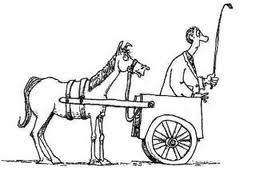Learning Forward (formerly known as the National Staff Development Council or NSDC) has developed Standards for Professional Learning for schools to use to help educators become better teachers, which will in turn improve student achievement. If we put into practice these 7 Standards (which have been adopted by the Kansas State Board of Education to be used in all Kansas schools), then Common Core, or whatever else we want to put in place, will have a much better chance of succeeding.
What are these Standards of Professional Learning? They are much like K-State Football Coach Bill Snyder's 16 Goals for Success that I talked about in a previous blog. They give everyone common language and opportunity to understand the "how and the why" so that the "what" can be put into place.
These professional learning standards address the following concepts and ideals:
- Learning Communities (no more teaching or learning in isolation);
- Leadership (that builds capacity and advocates and supports professional learning);
- Resources (prioritizing and coordinating services);
- Data (to drive teaching and learning);
- Learning Designs (research based strategies);
- Implementation (transferring what teachers know to the students); and
- Outcomes (goals and standards to strive for).
If we stick to the plan, and believe in the direction that it takes us, then these standards can help us with our vision, our designs, our instruction and our results. If we fail to effectively utilize even one of these 7 standards, then we will fall short. These standards are important individually, but are most effective if viewed as part of a specific process whereby we look at, discuss, review, and revise all aspects of the education we provide for our teachers and students.
It is important that all stakeholders understand what each standard entails and the importance of the 7 standards collectively. School Boards and administrators make decisions everyday that impact the kind and quality of professional learning in schools when creating the school calendar, allocating funds, negotiating with teachers, and by communicating to the public what is going on in their school in terms of teaching and learning. Teachers need to understand the importance of professional learning and move away from the idea of "in-service" where they typically find themselves disinterested and/or disconnected because they somehow fail to understand the importance of the connection between growing in knowledge and skills, reflecting on one's own practice, and student learning.
As educators, we are life long learners, or at least we should be. The old idea of "in-service" or "professional development" implies that the topics discussed on those days were done "to us" or "for us" rather than "with us." Professional Learning involves much more than sit and get or one and done. It involves taking new or different information, ideas, or strategies and determine ways to effectively use the new knowledge or skills in a way that makes us better teachers and helps us produce higher achieving students. It requires collaboration and support. By transferring what we learn to the classroom, the 7 Standards of Professional Learning help us make that connection between knowing and doing by providing a framework and process to ensure regular reflection and revision.
We need to know that what we are learning, why we are learning it, and if our implementation of that learning in the classroom is making a difference. We need to help each other by supporting our efforts to improve instruction and student learning. Regular examination of practice and results will lead us to revisions that fine tune the process and ultimately improve the outcome. Let's get that horse hooked up and see where it takes us!


 RSS Feed
RSS Feed